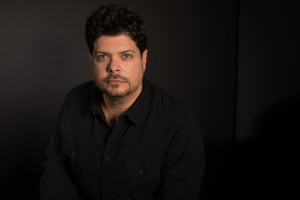Being a professional musician in a town known as “Music City” you must know how things work. With as many pros as Nashville has, there’s no room for error here. The nature of our profession has us being introduced to endless different work scenarios. Sometimes I am a producer. Sometimes I am a sideman on a recording session. Sometimes I am a player in a group of players who’s job it is to support an artist. Each role brings with it different “do’s” and “don’t’s” that can make or break your experience in that role and can lead to more opportunities to perform that role. However, some missteps can lead to that phone ringing less and less.
As a producer, my job is to work closely with the artist on the project for which I’ve been hired. Many times, the artist has all of these musical thoughts and ideas, but doesn’t know how to bring them out in a way that’s best for their career, while maintaining their own musical identity. As producer, I walk each step of the way with each artist on this journey. Song selection, pre-production arranging, vocal rehearsals, tracking sessions, vocal and BGV sessions, and mixing and mastering of the project are all tasks that each artist depends on me to guide them through on this journey of taking their words and initial musical thoughts and translating them into a deliverable piece of recorded music.
As a session leader, my job is to work closely with the producer(s) and artist(s) to convey the direction of the songs to be recorded to the other musicians. Luckily, Nashville has the most talented and gifted musicians in the world, and walking into a tracking session means walking in to a group of people who consistently deliver even more than was expected at the beginning of the day. I compare this to an NFL team. The coach has the most talented players and he/she can simply direct the plays a bit and let the players do their thing.
As a sideman in a recording session, my job is to listen to the producer(s), artist(s), and session leader to deliver the exact sound and approach that’s being asked of me. I always have suggestions and ideas, but I voice them differently than when I’m involved as a producer or session leader. Music is so organic and is constantly moving, so it’s best when the other people involved have the time to “explore” different approaches and let the sidemen also explore different sounds and ideas. Never forget, this is a creative process and needs to be treated as such. We’re not building a structure from a set of blue prints. We’re creating something that literally didn’t exist in this form an hour ago.
As a player in a live setting, I’m there to support the artist(s) during the performance. I must always listen more than I speak, and I’m talking about musically. My playing must always reflect what everyone else on stage is also doing. If you listen to the song and the other players, you will know what to do and when to do it. Music is a dance. The minute you forget where the other dancers are and what each person is doing, you will step on a toe. So, listen to your band mates and enjoy the dance!

